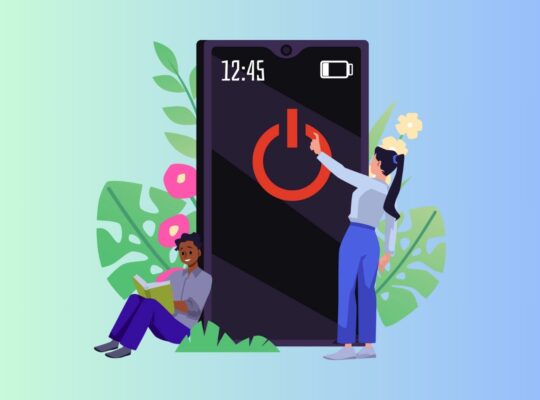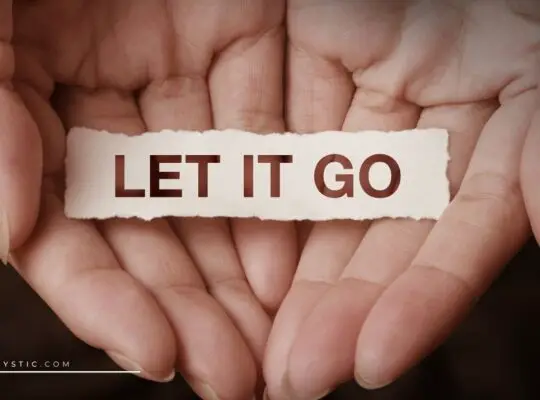Confidence is a crucial component for success, happiness, and fulfillment in life. Having a strong sense of confidence allows you to take risks, try new things, and pursue your goals with determination.
However, building and maintaining confidence can be challenging, especially in the face of setbacks and obstacles. That’s why it’s important to develop a set of actions and habits that can help you cultivate and strengthen your confidence over time.
Fortunately, it is possible to build more confidence within yourself through practice. Whether you’re looking to overcome self-doubt, take on new challenges, or simply feel more comfortable and secure in your own skin, these forty action steps can provide a solid foundation for developing lasting confidence and resilience.
40 Action Steps To Build Confidence
1| Identify your specific and unique strengths and focus on them.
Take time to reflect on what you are good at and what you truly enjoy doing. Focusing on your strengths can help you feel more confident in your abilities and help you build a stronger sense of self-worth. Often, people tend to focus too much on their weaknesses, which can cause major dips in self confidence levels. Learning how to focus on the positives–such as your strengths–can be a confidence booster.
2| Practice positive self-talk and affirmations.
Be mindful of the language you use when talking to yourself. You may even be using harsh, negative language when you speak to yourself without even noticing that you’re doing it!
Positive self-talk can be a powerful way to build more confidence because it can help you to reframe negative thoughts and beliefs about yourself and your abilities. When you use positive self-talk, you are essentially practicing self-compassion and self-encouragement, which can boost your self-esteem and overall sense of self-worth.
By consciously replacing negative self-talk with positive affirmations and messages, you can begin to shift your mindset towards a more optimistic and constructive perspective. This can help you to approach challenges and setbacks with greater resilience and motivation, as you are better able to recognize your own strengths and potential.
3| Set achievable goals and work towards them.
Setting goals gives you something to work towards and a specific sense of direction. By breaking larger goals down into smaller, achievable steps, you can build momentum and gain confidence as you progress. Rather than trying (and likely failing) to tackle one massive goal in one attempt, you can build confidence in a slower, steadier way by seeing actual progress happening, step-by-step.
4| Take on new challenges and step out of your comfort zone.
Challenging yourself can help you develop new skills and expand your comfort zone. Pushing past your limits can be uncomfortable, but it’s an important part of building confidence and resilience. Hanging out in your comfort zone might feel safe and secure, but personal growth won’t happen there–confidence building happens when you’re in new and unfamiliar territory.
5| Celebrate all of your successes, no matter how small.
Take time to acknowledge and celebrate your accomplishments, no matter how small they may seem. Celebrating your successes can help you feel more confident in your abilities and motivated to keep going; every time you celebrate one of your successes, you reinforce the notion that you are smart, strong, and capable.
6| Practice mindfulness and meditation to calm your mind and reduce anxiety.
Mindfulness and meditation can help you become more aware of your thoughts and emotions and develop a greater sense of inner peace and calm. When you’re feeling overly stressed-out, you may be more likely to doubt yourself. Learning how to calm those anxious feelings can help reduce that confidence-shaking sensation and help you feel more sure of yourself.
7| Focus on the present moment rather than worrying about the past or future.
Focusing on the present can help you feel more grounded and centered. By letting go of worries about the past or future, you can reduce anxiety and build confidence in your ability to handle whatever comes your way.
Focusing on the present can build more confidence because it can help you to avoid getting caught up in worries and doubts about the future or old, past mistakes. When you are fully present in the moment, you are better able to engage with the task at hand and give it your full attention and effort.
By focusing on the present, you can also develop a greater sense of mindfulness and self-awareness, which can be valuable for building confidence. When you are aware of your own thoughts, feelings, and behaviors, you can begin to identify patterns or habits that may be holding you back from feeling more confident.
8| Learn new skills and expand your personal knowledge.
Learning new things can be challenging, but it can also be incredibly rewarding. By taking on new challenges and expanding your personal knowledge, you can build confidence in your abilities and increase your sense of self-worth. The more you know and understand, the more confident in yourself you’ll feel–especially in moments where that newfound knowledge comes in handy.
9| Dress in a way that makes you feel good about yourself.
Dressing in a way that makes you feel confident and comfortable can help you project a positive self-image and feel more comfortable in your own skin. Rather than wearing “whatever” when you leave home, dress up a little nicer. Make an effort to reflect your personal style. Doing this will connect you to yourself and make you feel good about who you are.
10| Surround yourself with positive and supportive people.
The people you surround yourself with can have a big impact on your confidence and self-esteem. Seek out relationships with people who uplift and support you. If you tend to spend too much time around negative or toxic people, reconsider who you are allowing to make up your “main crowd”–these folks might be sucking the happiness and confidence right out of your life.
11| Smile and make eye contact with others.
Smiling and making eye contact can help you appear more confident and approachable and can also help you feel more comfortable and at ease in social situations. Even when your sense of confidence feels shaky, taking these small actions is a great way to project confidence and “fake it ‘til you make it.” Eventually, you’ll begin to relax and feel more comfortable.
12| Speak up and express your opinions and ideas.
Speaking up and sharing your thoughts and ideas can be intimidating, but it’s an important part of building confidence and asserting yourself. It’s essential to remember that your ideas, opinions, and thoughts are just as valid and share-worthy as others’. Allow yourself to share them and contribute to larger group discussions as a way to boost your confidence levels.
13| Take care of your physical health through exercise and a healthy diet.
Taking care of your physical health can have a big impact on your mental and emotional well-being. Exercise and a healthy diet can help you feel more energized and confident. When you are feeling your best on the inside, it is much easier to feel more confidence within yourself.
14| Stand up straight and maintain good posture.
Good posture can help you appear more confident and self-assured. While you may not feel confident on the inside, presenting yourself physically this way on the outside can help you repeat the efforts back in #11–by faking it ‘til you make it! Doing so can also help you feel more comfortable and at ease in your body.
15| Embrace failure as a learning opportunity rather than a setback.
Failure is an inevitable part of life, but it can also be a powerful learning opportunity. By reframing failure as a chance to learn and grow, you can build resilience and confidence in your ability to handle setbacks. Rather than allowing yourself to wallow in misery and sadness over a failure, you can learn how to extract the important learning opportunity from the experience so you can move forward with your life.
16| Practice gratitude and appreciate what you have.
Expressing gratitude can help you cultivate a more positive mindset and reduce feelings of anxiety and stress. By focusing on what you’re grateful for, you can build a sense of abundance and contentment in your life. Spend some time each day reflecting on what makes you feel grateful–you’ll likely realize that you have a good life, which can boost your confidence levels.
17| Help others and volunteer your time.
Helping others can be incredibly rewarding and can help you feel more connected to your community. It can also help you build more confidence by helping you understand how powerful your good deeds and actions can be. Seeing yourself making an effort that pays off is a rewarding way to feel a little more confident in your ability to do good for yourself and others.
18| Be kind to yourself and practice self-compassion.
Self-compassion and kindness are essential for building more confidence. By treating yourself with the same kindness and compassion that you would offer a friend or loved one, you can build confidence in your ability to weather life’s challenges with grace and dignity.
19| Take some calculated risks in life when you have opportunities to do so.
Taking calculated risks helps you build confidence and develop new skills and life experiences. By learning from failures and using them as stepping stones toward growth and learning, you can build more resilience and confidence in your ability to take on new challenges successfully.
Risk-taking can also be an important way to build more confidence because it can help you to step outside of your comfort zone and expand your perceived limits. When you take risks, you are essentially challenging yourself to try new things and push past your fears or doubts.
By engaging in risk-taking behaviors, you can begin to develop a greater sense of self-trust and self-reliance. When you take risks and experience positive outcomes, you can build confidence in your own abilities and decision-making skills. Even if a risk doesn’t turn out the way you hoped, you can still learn from the experience and build resilience for future challenges.
20| Face your fears and confront them head-on.
Facing your fears can be a powerful way to build confidence because it allows you to confront and overcome the obstacles that have been holding you back. When you face your fears, you push yourself out of your comfort zone and into new and challenging situations. Every time you face a fear, you prove to yourself that you are capable of handling difficult situations and that you have the courage and resilience to overcome obstacles and achieve your goals.
21| Keep a journal to track your progress and reflect on your thoughts and feelings.
A reflection journal can be an effective tool for building confidence because it allows you to reflect on your thoughts, feelings, and experiences in a safe and non-judgmental way. By regularly writing in a reflection journal, you can gain a deeper understanding of yourself and your personal journey, which can help to boost your self-esteem levels.
When you write in a reflection journal, you are able to explore your emotions and reactions to different situations, and to identify patterns and themes that may be negatively impacting your confidence levels. By reflecting on your accomplishments and successes, as well as your challenges and setbacks, you can gain a more balanced perspective on yourself and your abilities.
22| Practice active listening to improve communication with others.
Good communication skills can be an important way to build more confidence because they enable you to express yourself more effectively and assertively in various social and professional situations. When you are able to communicate well with other people, you are more likely to be perceived as competent, knowledgeable, and confident by others–and yourself.
Having strong communication skills can also help you to establish more meaningful connections with others and build stronger relationships. This can contribute to a greater sense of self-worth and self-confidence, as you develop a more positive and supportive social network.
23| Embrace your individuality and celebrate what makes you unique.
All people are unique, and when you learn how to embrace your own sense of uniqueness, you can feel even more confident in yourself. When you focus on your unique strengths, talents, and qualities, you can develop a greater sense of self-acceptance and self-love, which can in turn boost your confidence.
It is important to remember that each person has their own unique set of skills, experiences, and perspectives, and that this diversity is what makes all people valuable and interesting. When you celebrate your uniqueness, you are able to recognize the ways in which you contribute to the world and the people around you.
24| Take breaks and practice self-care to avoid burnout.
Self-care can be an important way to build confidence because it helps you to prioritize your own needs and well-being. When you practice self-care, you are sending a message to yourself that you are worthy of love and attention, and that your physical and emotional health is important.
By taking care of your physical health through activities such as exercise, healthy eating, and getting enough sleep, you can improve your energy levels, mood, and overall sense of well-being. This can lead to a greater sense of self-confidence and self-esteem as you feel better about yourself and your ability to take care of your body.
25| Set boundaries and prioritize your own needs.
Setting boundaries can be an important way to build confidence because it allows you to take control of your life and prioritize your own needs and goals. When you set boundaries, you are essentially saying, “this is what I am willing to accept, and this is what I am not willing to accept.” By doing so, you are asserting yourself and communicating your needs clearly to others, thus establishing their importance and validity.
26| Practice visualization to imagine yourself succeeding and feeling confident.
Practicing visualization can be a powerful way to build confidence because it allows you to imagine yourself succeeding and achieving your goals in the future. Visualization involves creating mental images of yourself successfully completing a task or achieving a goal; the more often you practice it, the clearer this future image of your successful self becomes. This can help to build confidence by allowing you to see yourself as capable and competent.
27| Seek professional help if needed, such as therapy or counseling from a mental health professional.
Going to therapy can be an important way to build confidence because it allows you to explore and address any underlying issues that may be affecting your self-esteem and self-confidence. Through therapy, you can gain a deeper understanding of yourself, your emotions, and your behaviors, which can help you to identify any negative thought patterns or behaviors that may be holding you back. Therapists and counselors serve as impartial third parties to your life; they can give you good advice and guidance that you may struggle to determine for yourself.
28| Embrace mistakes as a normal part of the learning process.
Embracing mistakes can be a great way to build more confidence because it allows you to develop a growth mindset and see failures as opportunities for learning and growth rather than evidence of your incompetence or inadequacy. When you embrace mistakes, you shift your focus from the outcome to the process, allowing you to learn from your experiences and improve over time. It’s also important to remember that all people (even the seemingly perfect people!) make mistakes–it is a very normal, human thing to do.
29| Take responsibility for all of your actions and decisions.
Taking responsibility for your actions and decisions can be an important way to build confidence because it allows you to take ownership of your own life and choices. When you take responsibility for your actions, you are demonstrating that you have the power to make choices that can positively or negatively impact your life, and that you are willing to accept the consequences of those choices.
30| Learn to say no when necessary to avoid overcommitment.
Saying no to other people can be challenging, but it’s a major part of building self-respect and self-care. By setting limits and sticking to them, you can build confidence in your ability to prioritize your needs and goals. Rather than overcommitting yourself to others’ needs and requests, you can reassert your own importance to yourself, which can be a big confidence booster. Any time you prioritize your own needs over the requests of others, you are not only asserting confidence among others, but you are creating more feelings of confidence within yourself.
31| Don’t compare yourself to others; instead, focus on your own progress and growth in life.
Stop comparing yourself to other people to build more confidence. This is a great way to feel more confidence in yourself because it allows you to focus on your own strengths, abilities, and accomplishments rather than constantly measuring yourself against other people. When you compare yourself to others, you run the risk of feeling inferior or inadequate if you perceive that others are doing better than you in certain areas of life. By focusing on your own progress and growth, you can develop a greater sense of self-awareness and self-appreciation.
32| Practice assertiveness to stand up for yourself and communicate your needs effectively.
Assertiveness can help you to build more confidence by empowering you to take control of your life and make decisions that are in your best interest. Rather than focusing on other people, being assertive for yourself requires you to focus on your own needs and prioritize what you want. It can also help to improve your relationships with others, as assertive communication can promote mutual understanding and respect.
33| Challenge negative self-talk and replace it with positive affirmations.
Challenging negative self-talk is another great action step you can use to build confidence because it allows you to identify and change the negative beliefs and thought patterns that may be holding you back. When you engage in negative self-talk, you are essentially reinforcing negative beliefs about yourself, which can lead to feelings of low self-esteem and confidence. By challenging negative self-talk, you can learn to reframe your thoughts in a more positive and empowering way. By replacing those negative self-talk phrases with positive affirmations, you can begin undoing a lot of negative work and replacing it with something more positive and productive.
34| Take time to reflect on your accomplishments and be proud of yourself.
Taking time to reflect on your past accomplishments can be an excellent method to build confidence because it allows you to focus on your strengths and successes rather than your shortcomings and failures. When you reflect on your past accomplishments, you can remind yourself of your abilities and the positive impact you have had on your own life or the lives of others.
Reflecting on past accomplishments can also help you to build a sense of resilience and optimism. By acknowledging the challenges you have overcome in the past, you can gain confidence in your ability to face future challenges and overcome obstacles.
35| Surround yourself with successful people you admire and emulate their behaviors.
Positive role models and mentors can be invaluable sources of guidance and inspiration. By surrounding yourself with people who embody the qualities and values you admire, you can build confidence in your ability to learn and grow from their positive examples. Sometimes having someone to serve as a guide of sorts can make realigning your hopes and dreams for yourself easier, making the act of positive change easier for you to do.
36| Take care of your appearance to feel confident in your own skin.
Taking care of your appearance can build more confidence because it can improve how you feel about yourself and how others perceive you. When you feel good about your appearance, you are more likely to feel confident and positive about yourself.
Taking care of your appearance can involve a range of activities, such as dressing well, grooming, maintaining good hygiene, and exercising regularly. These activities can help you to look and feel your best, and can also have a positive impact on your physical and mental health.
37| Stay organized and manage your time effectively.
Staying organized builds more confidence because doing so can help you feel more in control of your life. When you are organized, you are able to manage your time and resources more effectively, which can lead to greater productivity and achievement.
Being organized can also help you to feel more prepared and confident in your ability to handle challenges and unexpected situations. For example, if you have a well-organized workspace or schedule, you are less likely to feel overwhelmed or flustered when faced with a tight deadline or unexpected project. Rather than feeling like you have no control, you will feel more confidence in yourself and your ability to keep a good handle on what’s happening to you.
38| Take a public speaking course to improve your communication skills.
One of the most common feelings that challenges a person’s confidence is the fear of speaking in front of other people. Practicing public speaking skills builds confidence because it can help you overcome fear and anxiety related to speaking in front of others. Public speaking can be a challenging and nerve-wracking experience for many people, but by practicing your skills, you can develop greater self-assurance and a sense of comfort with this type of communication.
As you practice public speaking, you can develop more effective communication skills and learn to express yourself more clearly and persuasively. This can lead to greater self-confidence in your ability to convey your ideas and influence others.
39| Practice embracing uncertainty as an opportunity for growth.
Embracing uncertainty is another big action step toward feeling more confident in yourself because it allows you to develop a greater sense of resilience and adaptability. When you embrace uncertainty, you are able to accept the fact that life is unpredictable and that not everything will always go according to plan.
By embracing uncertainty, you can learn to be more flexible and open-minded in the face of change and challenge. This can lead to a greater sense of self-assurance as you develop confidence in your ability to adapt to new situations and overcome obstacles.
40| Remember that confidence comes from within and it is a journey, not a destination.
Confidence is not something that can be achieved overnight or with a single accomplishment or experience. Rather, it is a journey that involves ongoing personal growth, self-reflection, and development. True confidence comes from within, meaning that it is not based solely on external validation or achievement. It is rooted in a deep sense of self-awareness, self-acceptance, and self-esteem. The harder and longer you work toward building your own sense of confidence, the more you will notice your efforts paying off. You aren’t going to see an “overnight” change in your ability to feel confident in yourself, but you will see some progression over time.
The Bottom Line:
In conclusion, building confidence is an ongoing, lifelong journey that requires intentional effort and regular practice. The forty action steps listed above can be powerful tools for boosting self-esteem and cultivating a greater sense of self-assurance. Whether it’s facing your fears, practicing self-care, setting boundaries, or celebrating your uniqueness, each of these actions can contribute to a more positive and confident outlook on life that will give you major confidence boosts.
Remember that building confidence is not about being perfect or flawless. It is really all about recognizing your own inherent value and worth and embracing your strengths and weaknesses as a part of your unique life journey. By taking action to build your confidence, you can develop a more positive and resilient mindset, and approach challenges and opportunities with greater courage and conviction.
So, whether you start with one action or attempt to work your way through all forty of them, know that you have the power to transform your confidence levels and become the very best version of yourself that you can be–even though it will take time and effort to really build a good, strong sense of confidence.







